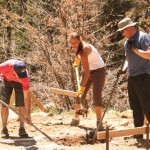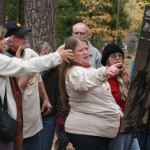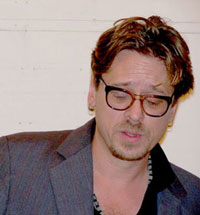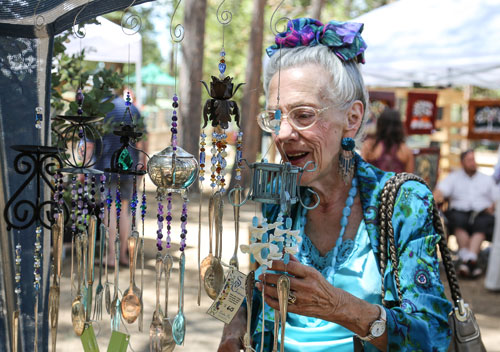
Idyllwild author Eduardo Santiago is not a writer of romance novels. His work tends to be a bit more gritty, colored and influenced by societal issues generated by memories of having lived in Cuba until he was 10.
But there remains for him, deeply ingrained after many years away, an ongoing and complicated romance with Cuba — one that recollection and revisits regularly renew. It is, he said, that unpredictable tug on the heartstrings when remembering Cuba that he will discuss as guest speaker at the Idyllwild Community Center Speaker Series, 6 p.m. Thursday, May 15 at Creekstone Inn. There is a wine and cheese reception at 5:30 p.m. preceding Santiago’s talk; there is no charge for admission to this event.
“I’ll be talking about what it was like to grow up in Cuba,” said Santiago. “It’s a story of this unrequited romance I have with my place of birth.” Santiago, the founder of the Idyllwild Author Series, said he will not be speaking primarily as an author but as a person still caught between two very different ways of living.
“There is the romance of Cuba and the reality of it,” he said. “They are quite different and it has always been that way historically.” Santiago said it’s hard to return to a third world country after having spent the majority of your life in the United States. “There are so many things we take for granted here that are not always available in Cuba — hot and cold running water and dependable electricity.”
He recalled, both from his first return in 1997 and more recent visits, that much of the island’s infrastructure is in major disrepair. “There are potholes in Havana that are large enough to hold a car. And yet there is what has always been beautiful — the sunsets, the warmth, the beautiful music and the spirit of the Cuban people. I’m happy to say the spirit of the Cuban people is intact. They are so good humored, passionate and very much enjoy meeting Americans.”
But, having said that, Santiago recalled visiting his cousins in 1997 and asking them as they walked on the streets how they felt about Castro and their island way of life. “They ignored my questions,” he remembered. “They would smile and change the subject and we’d continue walking.”
He described that it was not until he was wading in the water at Varadero Beach that one of his female cousins answered all the questions he had previously asked, one after another, in order. “At that beach you can walk about a half mile out into the water and still have it only come up to your knees. Not until we were well away from everyone else did she feel comfortable enough to answer my questions.”
He explained that then, and even now, public discussions of Castro and the government are avoided because someone could overhear. “It’s still a country where you can be arrested and vanished based on gossip. Accusers don’t have to have proof.” And yet, Cuba remains intoxicating to visitors and an object of affection for many if not most of its citizens.
Santiago said he has figured out why poor people in some third world countries such as India are often happier and more content than much wealthier U.S. citizens. “In countries like India, many who are born poor expect to die in much the same financial state,” he said. “The caste system put that in place. As a result if you’re not better off financially than when you were born, you’re not necessarily a failure. It’s just the way things are.”
And with the communist system in Cuba, financial advancement, until very recently, was out of reach for most Cubans. “In the U.S. it’s very different. If you don’t better yourself financially, then you’ve failed and it can make people stressed and unhappy. I’ve never understood that,” he observed.
Santiago, as attendees at this summer author series will attest, is an engaging and humorous speaker. He will talk about Cuba, but given how his memories of Cuba have influenced his writing, he said he would talk a little about a recent book “Midnight Rhumba,” as well as future projects.
The Idyllwild Author Series, which Santiago both founded and chairs, begins Sunday, June 1, on the deck of Café Aroma. “We have an extraordinary lineup of authors,” he said.
Of the author series, for which he receives no compensation and has at least partially funded, Santiago said, “I don’t have the kind of money to donate [to Idyllwild causes], so I give of my time. I figured when I first moved here that I wanted to make a contribution to my town.”












